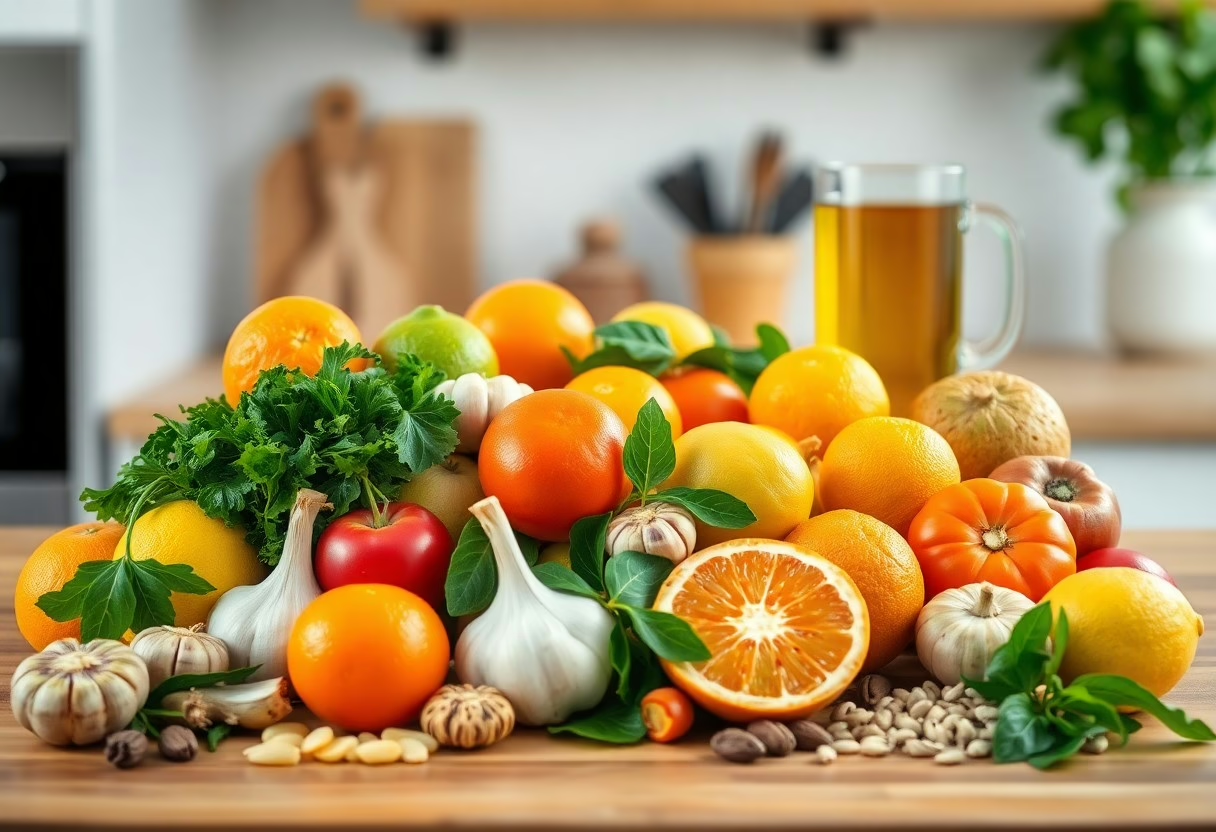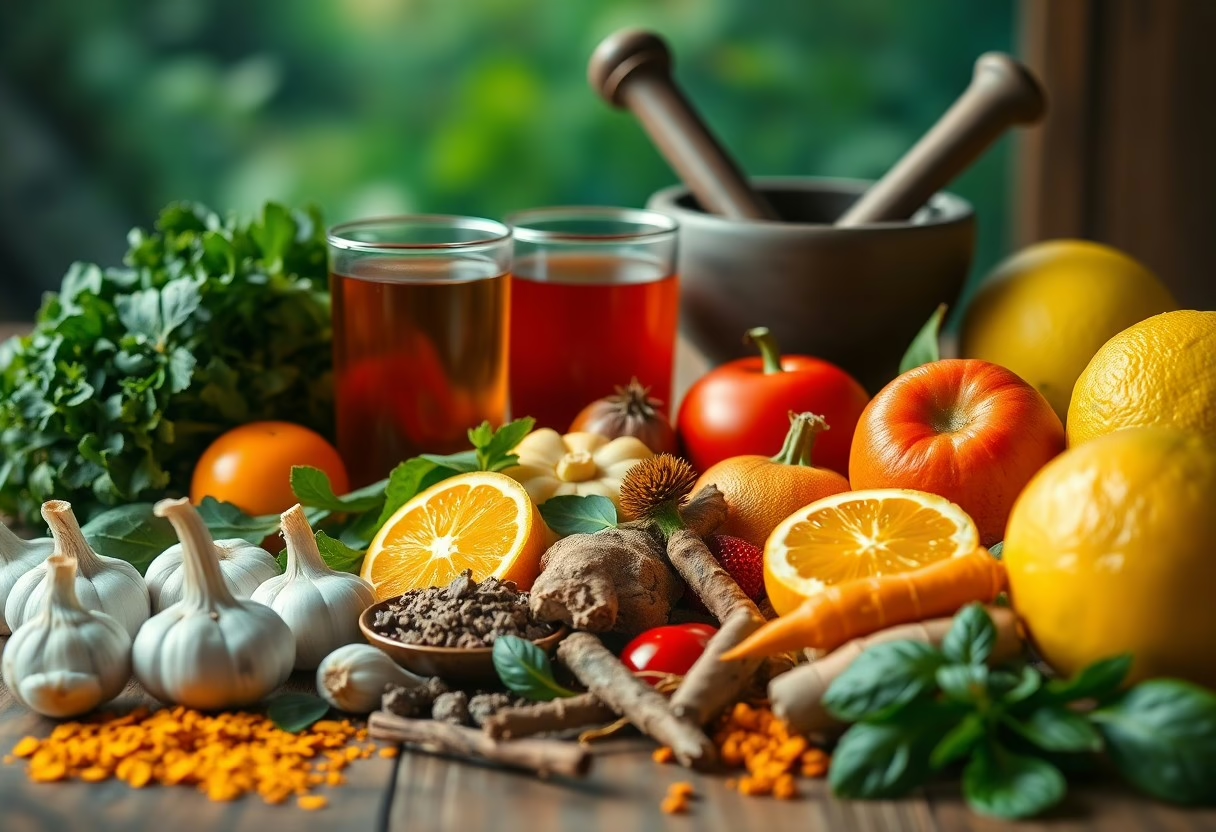Many people seek ways to enhance their immunity, often turning to supplements for a quick fix. However, the foods you eat can play a vital role in strengthening your body’s defenses naturally. By incorporating a variety of nutrient-rich ingredients into your diet, you can support your immune system’s function and overall health. In this post, you will discover effective, natural strategies that empower you to utilize food as medicine and safeguard your well-being without relying on commercial supplements.
Understanding Your Immune Response and Nutrition Connection
The immune response is your body’s defense mechanism against pathogens such as bacteria, viruses, and fungi through consisting of complex networks of cells, tissues, and organs working together to protect you from infections, while when threats are detected, your immune system activates white blood cells, antibodies, and other components that target and eliminate invading organisms, and this intricate process also involves memory cells that allow for quicker responses if the same pathogens invade again. Nutrition influences immunity through the foods you consume providing essential vitamins, minerals, and antioxidants that fuel your immune cells and support their optimal function, while deficiencies in key nutrients can weaken your body’s ability to fight off infections, making you more susceptible to illness, and conversely, a well-balanced diet rich in immune-supporting nutrients can enhance your body’s natural defenses, helping you maintain better health year-round. Gut health plays a vital role in immune function since approximately 70% of your immune system resides in your digestive tract, while beneficial bacteria in your gut help regulate immune responses and protect against harmful pathogens, and consuming fermented foods like yogurt, kefir, sauerkraut, and kimchi can promote healthy gut microbiome, which in turn strengthens your overall immune function.

Essential Immunity-Boosting Foods and Superfoods
Focusing on specific foods can significantly enhance your immune system without needing supplements through incorporating variety of nutrient-dense options such as citrus fruits packed with vitamin C, colorful vegetables rich in antioxidants, and whole grains that provide important fiber that will not only support your immune functions but also contribute to your overall health, while fermented foods like yogurt and kimchi can bolster gut health, which plays vital roles in immune response, and don’t overlook nuts and seeds, as they are excellent sources of healthy fats, vitamins, and minerals that keep your body resilient. Specific superfoods stand out for their remarkable health benefits through foods like garlic, known for its antiviral and antibacterial properties, that can fend off illness while berries provide rich sources of antioxidants, and incorporating turmeric, celebrated for its anti-inflammatory properties, can further support your body’s defense mechanisms, while green tea, laden with polyphenols, also plays key roles in enhancing immune function, and these nutrient powerhouses not only bolster your immunity but can also add rich flavors to your meals. A colorful plate offers spectrums of nutrients, each contributing uniquely to your immune health through different colors often correlating with specific nutrients, while for instance, orange foods like sweet potatoes are high in beta-carotene, and green leafy vegetables, such as spinach, offer wealth of vitamins A, C, and K, while incorporating variety of colors enables you to experience ranges of phytonutrients that work synergistically to enhance your immune system, and aim for rainbows of produce, as this not only ensures diverse nutrient intake but also encourages creativity in the kitchen.
Culinary Practices and Cooking Methods for Maximum Benefits
Enhancing your immunity involves not only what you eat but also how you prepare your food through culinary practices that can play pivotal roles in maximizing the nutrient content of your meals, enabling your body to absorb and utilize crucial vitamins and minerals effectively, while by choosing the right cooking methods and incorporating powerful flavor enhancements, you can create meals that support your immune system while tantalizing your taste buds. Opting for cooking methods such as steaming, sautéing, or roasting can help you retain more nutrients in your food through for instance, steaming vegetables like broccoli and spinach preserves their vitamins A and C, which are vital for immune function, while using minimal water and cooking at lower temperatures protects sensitive compounds such as antioxidants, ensuring that your body reaps the maximum benefits from every bite. Incorporating variety of herbs and spices can significantly enhance both the flavor and nutritional profile of your meals through turmeric, known for its active compound curcumin, having potent anti-inflammatory properties and can support immunity, while garlic, rich in allicin, provides antimicrobial benefits, and oregano is packed with antioxidants, and by embracing these flavorful additions, you’re not just seasoning your food, but also boosting your health with every dish.
Lifestyle Factors and Cultural Wisdom Integration
Immune health extends beyond diet and supplements; your daily habits significantly influence how well your body can fend off illnesses through factors like sleep quality, stress levels, and physical activity playing central roles in supporting your immune function, while understanding how these lifestyle elements interact can guide you in making choices that enhance your overall health. Adequate sleep and effective stress management are often underestimated yet profoundly affect your immune system through sleep fostering the production of protective proteins, including cytokines, which are vital in defending against infections, while consistently achieving 7-9 hours of quality sleep allows your body to repair and regenerate, and robust stress management techniques, such as meditation or yoga, lower the levels of cortisol, hormones that can suppress immune function if elevated for prolonged periods. Regular physical activity is dynamic ways to fortify your immune response through engaging in moderate exercise, like brisk walking, for at least 150 minutes per week that can lead to better circulation and efficient immune cell distribution throughout your body, while this helps your body detect and fight off pathogens promptly, reducing the frequency and duration of infections, and furthermore, strength training twice a week can enhance muscle mass and metabolism, contributing further to improved immune performance. Many cultures across the globe have long embraced food and natural remedies as foundational elements of health, revealing treasure troves of wellness practices through these traditions often encapsulating holistic approaches that have been passed down through generations, emphasizing the interconnectedness of body, mind, and environment, while by looking at these diverse practices, you can draw inspiration for your own health journey, integrating time-honored wisdom into your modern lifestyle.
Conclusion
Presently, embracing the concept of food as medicine can empower you to enhance your immunity naturally through incorporating variety of nutrient-dense foods, such as fruits, vegetables, whole grains, and healthy fats into your diet where you can provide your body with essential vitamins and minerals it needs to thrive, while additionally, staying hydrated, getting adequate sleep, and managing stress are vital practices that support your immune health. Prioritizing these natural approaches not only strengthens your defenses but also contributes to your overall well-being.



